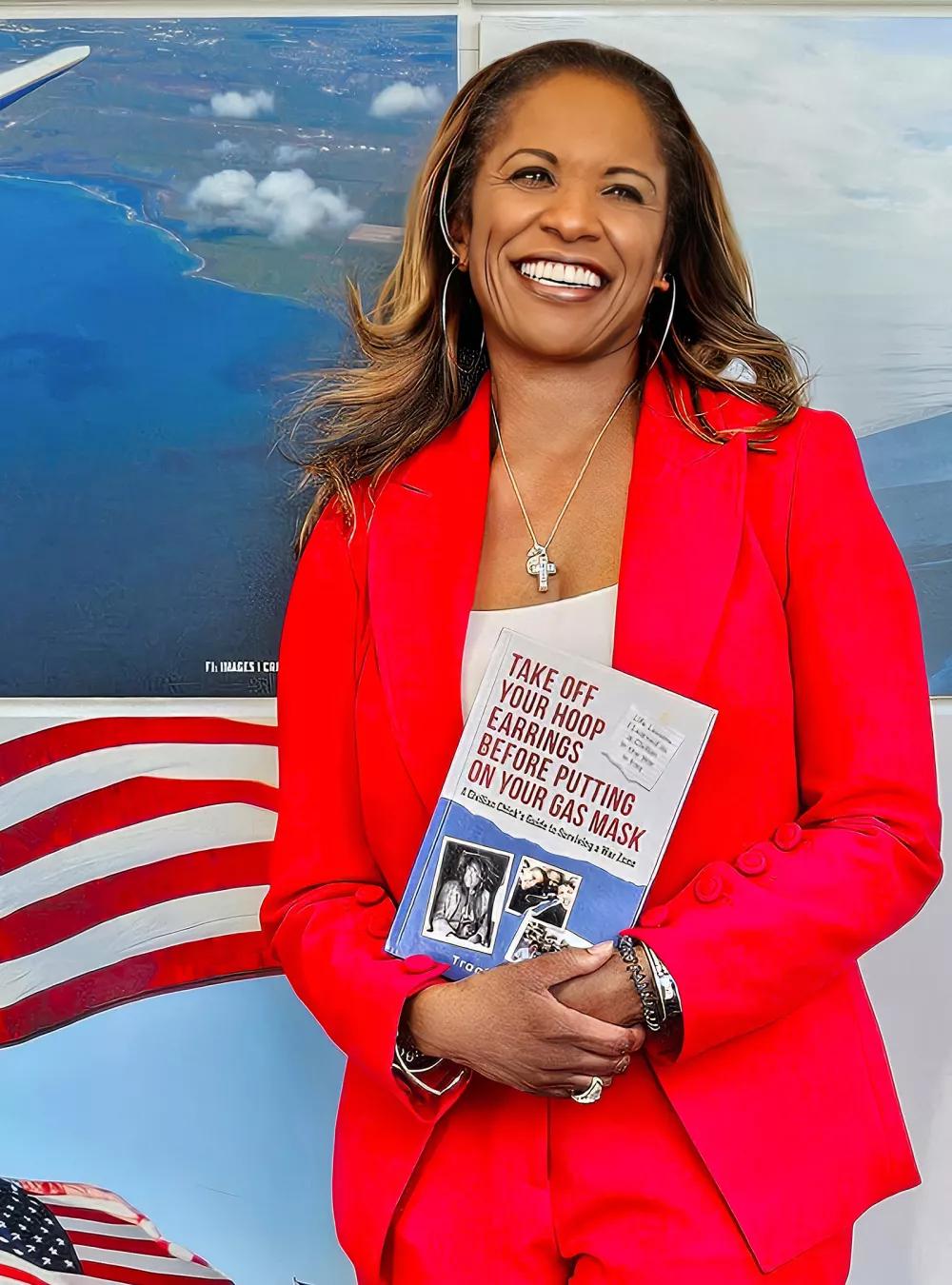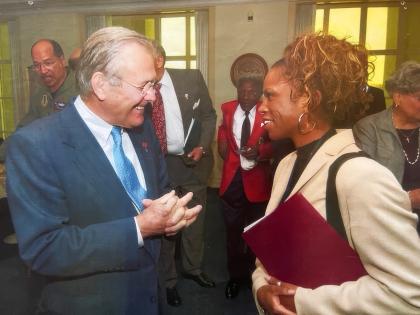Traci Scott, Center for Government Effectiveness and Modernization

Traci Scott: Storytelling for Impact
Communication comes easily to Traci Scott. It always has.
“From early on, I realized the power of storytelling to shape critical national and international discussions and inform action. I was hooked,” says Scott, outreach and communications lead for MITRE’s Center for Government Effectiveness and Modernization (CGEM).
Scott’s journalism career began at age 16 outside Tokyo, where her stepfather was stationed with the Air Force. She was a youth reporter for the Far East Network that primarily served U.S. forces in Japan.

After graduating from Howard University, she worked for more than a decade with CBS News, starting as an intern and then moving to the Evening News and “CBS This Morning.”
“I learned how to tell and shape stories from the best—the Dan Rathers, Bob Schieffers, and Lesley Stahls of the world,” says Scott, who credits Stahl for encouraging her to pursue journalism.
She went on to become an associate producer and reporter, working in journalism for more than 20 years, later translating her communications expertise to Capitol Hill and the federal space. Along the way, she earned a master’s in political management from George Washington University.
Scott’s work trajectory included stints as communications director for members of Congress, press officer for Ambassador Paul Bremer during Operation Iraqi Freedom (OIF), a liaison for congressional press staff at the Department of Defense, a political adviser to 16 Army generals, and senior adviser for strategic communications to the secretary of Veterans Affairs (VA).
Scott knew she wanted to continue working in the public interest following her work at the VA. She joined us in 2021, lending her communications credentials to tell the story of our mission: solving problems for a safer world.
Determined to Serve
“What I love most about working at MITRE is meeting brilliant people who share their talents to serve our sponsors,” says Scott.
CGEM supports civil agency transformation—from the Treasury Department and IRS to the VA and Commerce Department—through the Center for Enterprise Modernization, the federally funded research and development center MITRE operates to advance government innovation.
Scott’s recent story about a MITRE-VA Boston Healthcare System independent research collaboration called Mining Audio Cues from PTSD Interviews (MACPI) describes how the team uses artificial intelligence to analyze voice data to improve post-traumatic stress diagnoses—and get veterans the care they need.
From early on, I realized the power of storytelling to shape national and international discussions and inform action.
The topic is deeply personal for Scott, who experienced a years-long struggle with PTSD after serving as a civilian press officer during OIF from 2003 to 2004 and in subsequent roles in Iraq and Afghanistan from 2004 to 2009.

“I was determined to serve our nation following the 9/11 attacks,” Scott says. “Then a contact at the Pentagon told me media expertise was needed to help tell the story of Iraq’s rebuilding.”
Her self-described “Pollyanna” attitude faded just six days after arriving in Baghdad, when her friend’s arm was nearly torn off in a mortar attack. Another friend was killed by a sniper shortly after they’d exchanged hellos.
“I didn’t realize it at first, but PTSD left me in an emotional black hole. I felt nothing,” Scott says. “I couldn’t sleep because of recurring nightmares. I was angry all the time. It took me three years after coming home to start putting my thoughts down.”
Restore and Recover
What started as a healing exercise 15 years ago turned into a 160-page book.
“Take Off Your Hoop Earrings Before Putting on Your Gas Mask: A Civilian Chick’s Guide to Surviving a War Zone” is a collection of hard-fought lessons Scott hopes will help people—young, old, civilian, or military—persevere in the face of any type of overwhelming stress.
“Everyone’s war zone takes a different form,” Scott says. “It could be battling cancer. Or working three jobs. Maybe you’re a caregiver. Any extreme situation that challenges and changes you is your personal battlespace.”
There were some much-needed moments of levity during her time in Iraq, including the incident that inspired the book’s title (a nod to Scott’s signature accessory). She learned the importance of laughter as relief amid constant danger and worry.
The book was published in May 2024, just before the 20-year mark of the U.S. transfer of sovereignty to an Iraqi interim government. Scott dedicates it to those who sacrificed their lives to help rebuild the country. She also acknowledges her “IraqPak” friends for their unwavering support throughout her recovery from PTSD and beyond.
From the outset, Scott states she’s not providing an analysis of the Iraq War or OIF. She speaks from her experience as a noncombatant, a journalist, and a woman.
Always a champion for the value of communication, Scott hopes what she learned can “save someone from a lot of pain.”
“It’s not the story,” she says. “It’s what you do with it.”
Listen to Traci Scott’s interview with WTOP’s national security correspondent JJ Green on Colors: A Dialogue on Race in America.
Join our community of innovators, learners, knowledge-sharers, and risk takers. View our Job Openings and Student Programs. Subscribe to our MITRE 360 Newsletter.